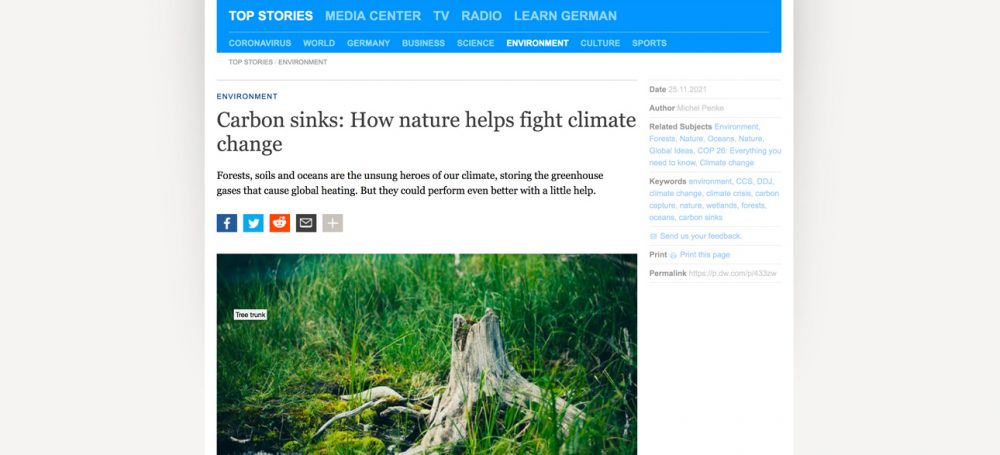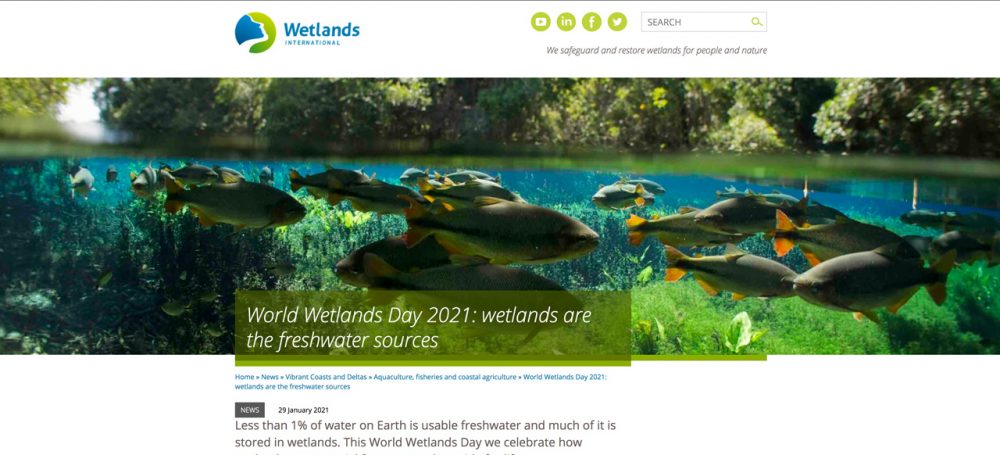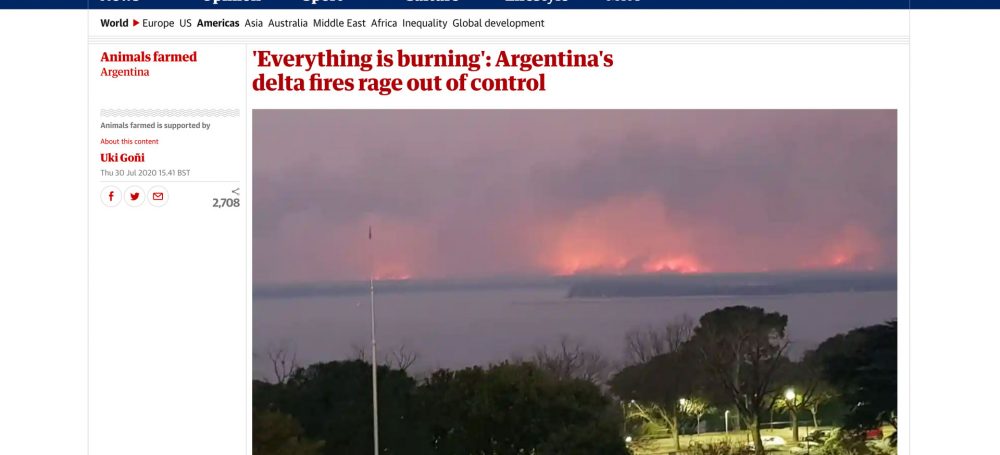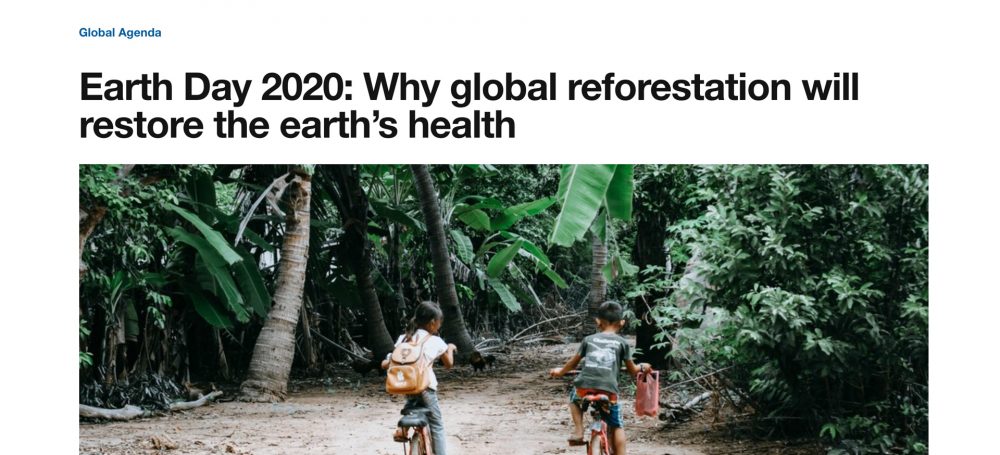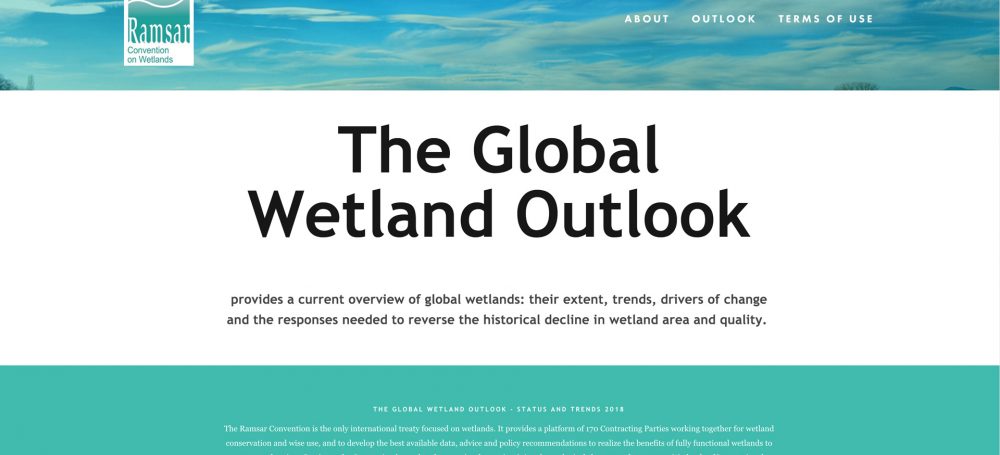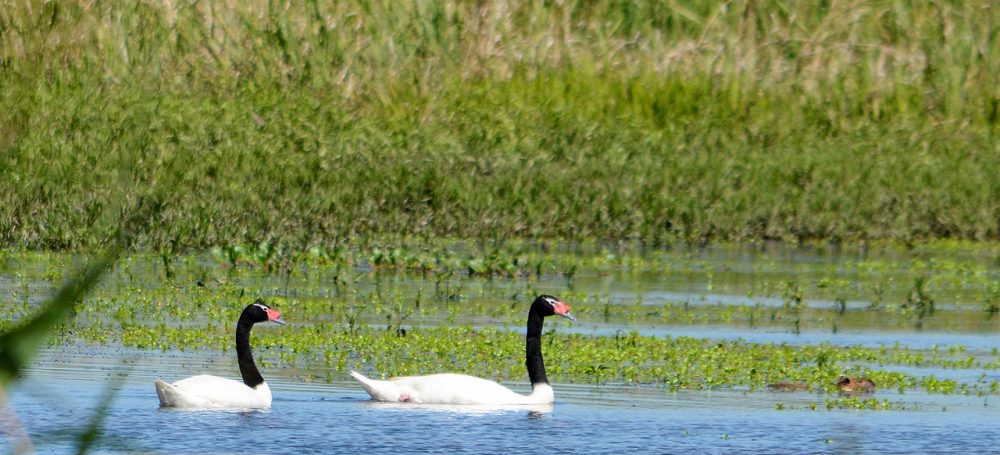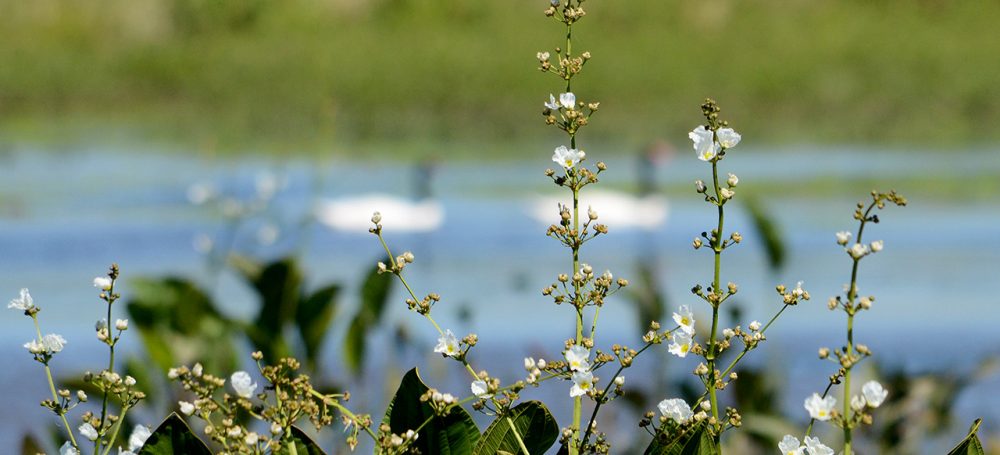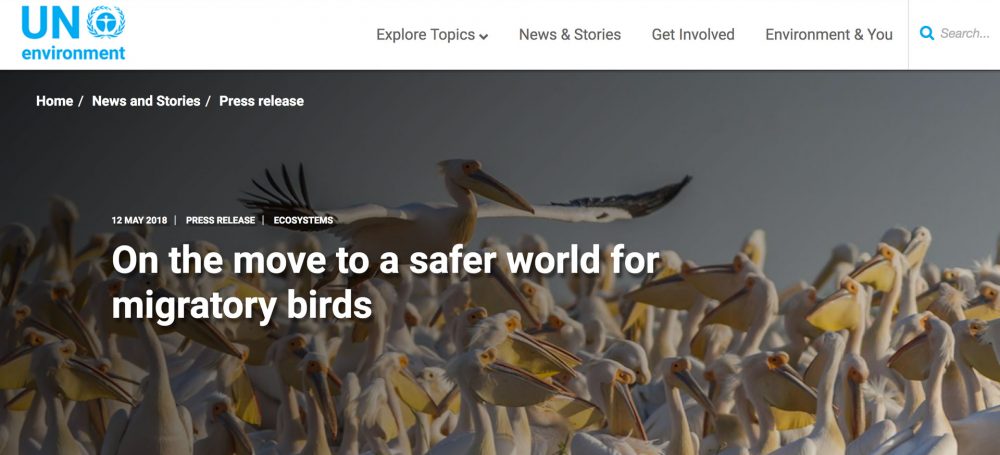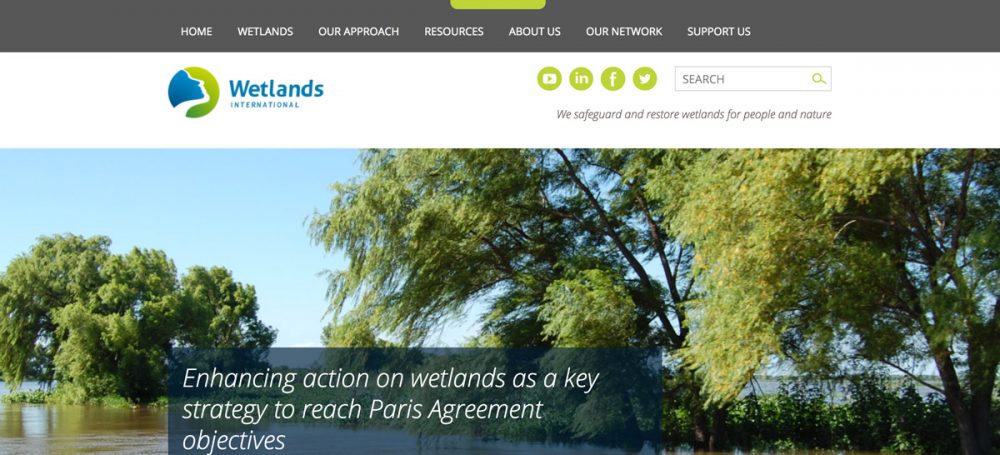Forests, soils and oceans are the unsung heroes of our climate, storing the greenhouse gases that cause global heating. But they could perform even better with a little help.
Smoking industrial chimneys, exhaust fumes, fires in the Amazon — yearly carbon emissions recently swelled to 12,000,000,000 tons (12 gigatons).And as carbon increases, so do temperatures.
Around half of emissions released remain in the atmosphere. Nature absorbs the rest, holding it in carbon sinks, such as soil, oceans and vegetation.
Less than 1% of water on Earth is usable freshwater and much of it is stored in wetlands. This World Wetlands Day we celebrate how wetlands are essential for water and provide for life.
The world is facing a growing freshwater crisis that threatens people and our planet. This year’s World Wetlands Day shines a spotlight on wetlands as a source of freshwater and encourages actions to restore them and stop their loss. Wetlands are the water systems in the
This year, the Pantanal – the world’s largest tropical wetland – has seen three times as many fires as 2019, exacerbated by climate change and likely started by humans. The BirdLife Partnership is calling on the Brazilian and international governments to urgently increase action.
Last summer, the news of the burning Amazon rainforest captured mass media attention and sparked worldwide outcry. But the worrying truth is that these fires never completely went out. In fact, this year, it seems that
Cattle ranching and drought have turned the Paraná River grasslands to tinder, threatening disaster for the area’s wildlife
A raging fire described as “completely out of control” is threatening one of South America’s major wetland ecosystems. The fire has been burning for months now, and is visible from the balconies of luxury apartments along the shoreline of the Paraná River in Argentina’s central city of Rosario.
Continue reading complete article
Today marks the 50th anniversary of Earth Day. It arrives during a global health crisis that scientists have long predicted. Suddenly, we find ourselves in a real nightmare scenario that science warned us about, with human and social tragedies unfolding globally. The economic consequences of the COVID-19 pandemic will stay with us for years.
Science has of course also warned us about the unfolding climate and environmental crises. For example, we know that:
75% of terrestrial ecosystems are “severely
The Global Wetland Outlook provides a current overview of global wetlands: their extent, trends, drivers of change and the responses needed to reverse the historical decline in wetland area and quality.
THE GLOBAL WETLAND OUTLOOK – STATUS AND TRENDS 2018
The Ramsar Convention is the only international treaty focused on wetlands. It provides a platform of 170 Contracting Parties working together for wetland conservation and wise use, and to develop the best available data, advice and policy recommendations to
Descargar artículo: Nature based solutions for water
Bonn, 12 May 2018 – The Earth’s great travellers – birds that sometimes trek thousands of miles between their breeding places and their wintering grounds – will be centre stage this World Migratory Bird Day, as the international community recognize their significance and vulnerabilities.
“Unifying Our Voices for Bird Conservation” is the theme of World Migratory Bird Day 2018, celebrated annually on 12 May. The UN-backed global awareness-raising and environmental education campaign focuses the need for international cooperation to conserve
Addressing freshwater ambitions explicitly through Nationally Determined Contributions (NDCs) provides a key entry-point for countries to emphasise the importance of freshwater strategies for adapting to climate change and reducing greenhouse gas emissions. Including wetlands explicitly in the next round of their NDCs (to be communicated by 2020) will help countries to raise awareness of this in dialogues and political processes at all levels and discuss targets and set policies. This policy brief uses the three guiding questions of the Talanoa Dialogue:

